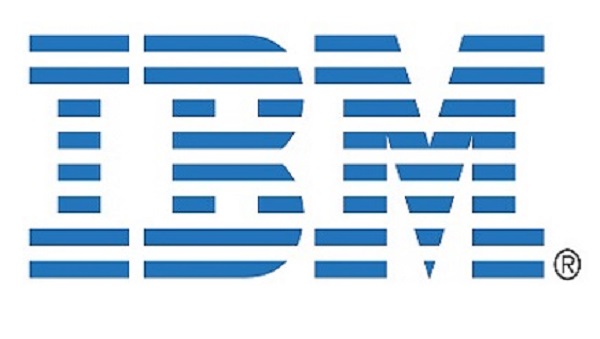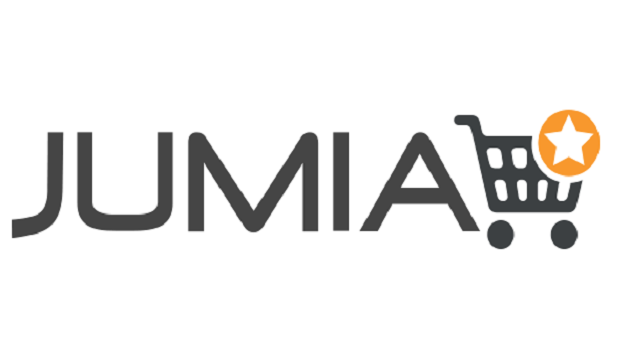E-Business
IBM Supports D4Ag Collaboration for African Start-ups

IBM has announced support for the Digital4Agriculture Initiative (D4Ag), which aims to foster African start-ups in the agricultural sector and strengthen the long-term living conditions of local small farmers by increasing productivity and quality.

In a statement released to the media, IBM said that with the help of digital expertise from IBM Services and access to accurate weather data provided by IBM’s The Weather Company, D4Ag has successfully launched “and is helping over 36 African agricultural companies become better prepared for the digital future.”
The company’s statement reads: “Reliable weather forecasts are very difficult to make for Africa’s agricultural industry due to IT infrastructure unavailability. Small agricultural enterprises not only lack internet access and suitable hardware, but existing data is often unreliable or difficult to process.
“By making high-resolution weather data available to agricultural start-ups, DG4Ag is providing valuable information to small farmers that can help them make important decisions with greater confidence.
“For example, historical weather data from a tea plantation served as training material and showed how data analysis can be used to increase yields, as well as to determine the best time to harvest or the optimal use of fertilisers or pest control.”
Moreover, on behalf of the Federal Ministry for Economic Cooperation and Development (BMZ), the German Society for International Cooperation (GIZ) is implementing the D4Ag program within the framework of the project “Make-IT in Africa”.
This project is designed to promote the start-up scene in the digital sector of developing and emerging countries together with (primarily) European technology companies, start-ups, associations, research & science and non-governmental organisations.
IBM joined the Make-IT Alliance in 2017 as part of its #GoodTechIBM program.
Desiree Winges, consultant at Make-IT in Africa and responsible for D4Ag, said: “We want to help local start-ups to reach more customers and develop new markets. To this end, we provide them with basic knowledge in the areas of data analytics, interoperability and business modelling. We also want to promote cooperation between start-ups and platform operators to fully exploit the opportunities of the digital world.”
Florian Scheil, Account Executive Public Sector, IBM, added: “Small farmers are the backbone of Africa’s food supply and their success and quality of life depends upon having reliable weather forecast data and insights. We’re proud to provide African farmers with weather information and services access to help them better manage and improve their crop production.”
Three-stage training expands skills of agricultural start-ups
Experts from GIZ and IBM Services have been working together on the project for about three years and have developed a digital coaching concept for start-ups offering agricultural services to African farmers. The high-resolution weather data, which serves as a basis, is provided by The Weather Company.
To achieve this, IBM Services and GIZ have created a three-stage, interactive training concept consisting of individual e-learning, workshops on business modelling, interoperability and data analytics and detailed materials with tips and suggestions for future projects. The virtual training lasted several weeks and showed the participants how to use high-resolution weather data and up-to-date alerts to help smallholders grow their products more sustainably and healthily.
Reading tea leaves
In the workshop, participants were able to analyse historical data about a tea plantation – crop size, temperature, rainfall, etc. – and determine whether there is, for example, a correlation between weather conditions and yields.
“The next step was to use the results for the future. If you discover a pattern, you can plan future harvest phases accordingly and thus increase yields in the long term,” explained Silas Macharia, trainer at D4Ag’s Capacity Development Workshop.
Access to information from the industry enables start-ups to establish themselves successfully on the market in the long term, thus ensuring more jobs in the region and stable growth.
In the first edition of the training sessions, more than 36 start-ups from 13 countries such as Côte d’Ivoire, Nigeria, Kenya, Ghana and Zimbabwe in Africa took part.
“This course came at exactly the right time for my company. We are currently considering integration into a larger digital platform and this week has really opened my eyes,” says Fred Zamblé of Seekewa, an Agrifintech that identifies promising agricultural projects and promotes them with the help of third parties.
E-Business
GenAI Adoption Among African workers Outpace Global Peers

Africa’s workforce is embracing artificial intelligence (AI) at a faster pace than global peers, but pressure is mounting for organisations to ramp up digital skills development as generative AI (GenAI) begins reshaping roles across industries.

This is according to PwC’s Global Workforce Hopes and Fears Survey 2025, which shows a continent ready for AI-enabled transformation, but facing a narrowing window to prepare, through skills development initiatives.
The survey, covering nearly 50 000 workers worldwide and 1 753 across South Africa, Algeria, Kenya, Morocco and Nigeria, finds that African employees are already integrating AI into daily operations.
Sixty-four percent of respondents in Africa used AI tools in the past year, compared to 54% globally, and the sentiment is overwhelmingly positive. While only 17% report using GenAI every day, confidence in its benefits is high: 76% believe GenAI improves work quality, and 72% expect AI-driven productivity gains within three years.
In SA, executives are even more bullish, as 91% say AI has already lifted both productivity and work quality — a signal that leadership is pushing harder toward AI-enabled ways of working, notes the survey.
However, this optimism is coupled with rising concern about future readiness. Only 35% of African workers believe their skills will still be relevant three years from now. With GenAI expected to affect nearly half of all job roles, PwC warns that the continent’s workforce risks falling behind unless organisations accelerate large-scale reskilling.
Despite the pressures, employees are not standing still. PwC notes that African workers outperform their global peers in proactive learning, recording 15% higher participation in skills-building and receiving 6% more support from managers. This indicates that both workers and immediate supervisors recognise the pace of AI adoption and are pushing to adapt.
PwC Africa people and organisation leader, Dr Dayalan Govender, says the moment calls for decisive leadership. Organisations, he argues, must integrate AI into workforce strategies, accelerate digital adoption, and expand upskilling programmes at scale.
“Africa’s workforce is optimistic and ready for change, but leaders must accelerate digital adoption and invest in future-ready skills to convert this optimism into sustainable growth,” he says.
Beyond the technology shift, the survey captures a workforce hungry for growth but constrained by financial pressure. Many employees are preparing to make career moves: 45% plan to request a raise, and another 45% aim for a promotion in the next year. Yet household financial stability remains strained, with only a third of respondents reporting any money left over for savings.
Still, Africa’s workplaces continue to show strong foundations of trust and purpose — elements PwC believes will be critical in navigating GenAI disruption. More than 55% of workers trust management, and two-thirds say their work feels meaningful, both above global averages.
With AI adoption rising and employees motivated to reinvent their careers, PwC warns that the coming years will determine whether Africa’s early optimism translates into long-term competitiveness as GenAI transforms the world of work.
The report calls for embedding AI into workforce strategies to bridge the gap between optimism and practical adoption, scaling upskilling initiatives to prepare for GenAI disruption, and fostering trust and psychological safety to retain talent and drive innovation.
“For employers, these findings are a stark reminder that they can and should do more to help workers understand, adopt, and embrace AI’s transformative power.
“Employers may need to pay special attention to entry-level workers, nearly a third of whom say they’re worried to a large or very large extent about AI’s impact on their future, even as they’re also curious (47%) and optimistic (38%) about its long-term societal effects,” notes the report.
E-Business
Nigeria Records Highest Weekly Cyberattacks in Africa — Report

Nigerian organisations are facing the highest volume of weekly cyberattacks in Africa, according to the newly released African Perspectives on Cyber Security Report 2025 by Check Point Software Technologies Ltd., a global leader in cybersecurity solutions.

The report revealed that Nigerian firms experience an average of 4,200 attacks per week, significantly higher than the continental average of 3,153 and 60 per cent above the global average of 1,963 attacks per organisation.
The findings highlight a sharp rise in attacks across Africa, driven largely by artificial intelligence-enabled threats.
Kingsley Oseghale, country manager for West Africa at Check Point, said attackers are increasingly using AI to automate phishing, impersonation, and cloud exploitation.
“AI has become part of the attack surface,” Oseghale said. “Attackers are using it to automate phishing and identity theft at scale. The only effective response is prevention-first security that combines visibility, governance, and AI protection.”
The report noted that cybercriminals are exploiting exposed identities and misconfigured systems to target critical sectors, including finance, energy, telecoms, and government.
Identity-led intrusions, AI-generated phishing campaigns, and multi-vector ransomware are on the rise.
Across the continent, Check Point identified key trends in different markets. Nigeria is experiencing business email compromise and cloud exploitation; South Africa faces rising ransomware, smishing, and botnet infections such as Vo1d and XorDDoS; Kenya has seen ransomware targeting critical energy infrastructure; and Morocco has experienced coordinated government and education-sector disruptions via DDoS and website defacement attacks.
The report highlights five major shifts shaping Africa’s cyber risk in 2025.
Traditional ransomware has evolved into data-leak extortion, AI-generated deception is widespread, and identity has emerged as the new security perimeter.
Weak cybersecurity, the report warned, can now affect international market access under regulations such as the EU’s NIS2 Directive, making digital resilience an economic necessity.
The study urged African businesses and governments to adopt prevention-first security strategies, including continuous risk assessment, regulatory readiness, and public-private collaboration.
Oseghale emphasised that, as AI reshapes operations, cybersecurity must shift from reaction to prediction.
“The real challenge is not adopting new technology but securing the trust that underpins it,” he said.
E-Business
Jumia’s Data Shows Nigerians Turning to Digital Retail to Navigate Inflation Pressures

As Black Friday 2025 unfolds across Nigeria, new insights from Jumia’s Q3 2025 financial results reveal that more Nigerians are relying on digital retail to navigate inflation and rising living costs.

The data points to a more deliberate, value-driven shopper, one using online platforms to stretch budgets, compare options quickly, and extract more value from each purchase.
Jumia reported a 30 percent year-on-year increase in physical goods orders, while Gross Merchandise Value for physical goods rose by 43 percent.
This stronger GMV growth highlights a clear behavioural shift: consumers are assembling higher-value baskets by combining essentials with premium or long-term household items. Online retail is serving as a tool for strategic planning, not just convenience.
According to Temidayo Ojo, Chief Executive Officer of Jumia Nigeria, Black Friday now plays a more critical economic role. “Households are using digital retail to defend purchasing power. They plan their lists, compare prices instantly, and rely on the reliability and convenience that e-commerce offers,” he said.
This year’s Black Friday trends show growing demand in categories that directly support daily living. Household essentials and FMCG products are seeing significant uptake as families stock up during price drops. Home and kitchen equipment is also experiencing stronger demand as shoppers prioritise practical, durable tools. Affordable fashion and beauty products are gaining momentum as discounts make them more accessible.
Consumer behaviour in the lead-up to the sales period further reinforces this shift. Jumia recorded a notable increase in “Add to Wishlist” and “Add to Cart” activity, signalling more planning and fewer impulse purchases. The gap between GMV and order growth indicates that customers are optimising baskets using bundles, vouchers, and promo combinations, behaviours uniquely suited to digital platforms.
With inflation intensifying the need for smarter buying, trust markers on Jumia, such as verified sellers, official brand stores, ratings, and clear return policies, are becoming more central to decision-making. Authenticity and durability now outweigh the appeal of the lowest price.
Jumia’s logistics footprint is making these benefits available nationwide. Its 30,000 sqm Isolo fulfilment centre, 480 pickup stations, and 62 logistics partners ensure that customers in secondary and peri-urban cities enjoy the same deals as those in major hubs, reducing travel burdens and adding financial value.
Overall, Jumia’s Q3 data and Black Friday trends show that Nigerians are turning to digital retail as a practical, strategic response to inflation, using e-commerce to manage budgets, preserve purchasing power, and make more informed buying decisions.

 E-Business2 days ago
E-Business2 days agoJumia’s Data Shows Nigerians Turning to Digital Retail to Navigate Inflation Pressures

 E-Business2 days ago
E-Business2 days agoNigeria Records Highest Weekly Cyberattacks in Africa — Report

 News2 days ago
News2 days agoSEC to Enhance Investor Engagement with USSD Code, ISS Audio

 Telecom2 days ago
Telecom2 days agoAirtel Nigeria Wins Best in Technology for Development @ 2025 SERAS Awards

 Telecom2 days ago
Telecom2 days agoNigeria-South Africa Chamber Celebrates Silver Jubilee of Bilateral Trade Ties

 News2 days ago
News2 days agoFirm Detected Half a Million Malicious Files Daily in 2025

 Broadcasting1 day ago
Broadcasting1 day agoIt is Official, DStv Confirms Termination of 16 Major Channels

 News2 days ago
News2 days agoNEC Endorses N100Bn Overhaul of Police and Security Training Facilities



























